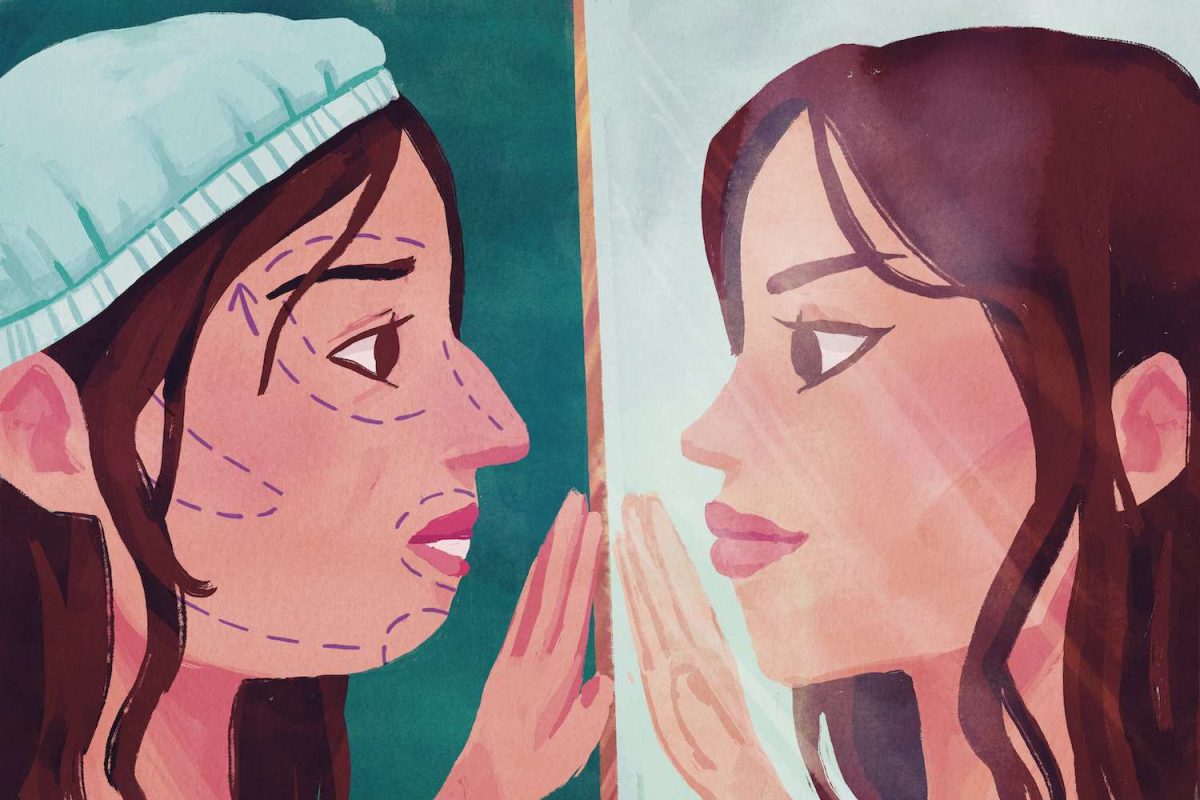Many are struck with the idea of becoming “perfect” early on in their lives from the heavy use of social media. By watching celebrities and influencers, these users gain a desire to look like them. However, different genes come into play which causes physical distinction. Unfortunately, instead of perceiving these differences as unique, they find it shameful which results in a permanent decision: plastic surgery.
A report in 2023 found that there has been a cosmetic procedure uprise of nearly 30% in 2021 compared to 2019, and a 50% increase compared to 2020. Moreover, The International Society of Aesthetic Plastic Surgery (ISAPS) released results from their annual Global Survey on Aesthetic/Cosmetic procedures, revealing a 19.3% increase in procedures performed by plastic surgeons in 2021 and more than 12.8 million surgical procedures done worldwide. This report provides insight regarding the rise of aesthetic surgery, with a 33% increase over the last four years.
Underlying disorders play into account for someone’s decision to get plastic surgery. The main disorder that is commonly associated with plastic/cosmetic surgeries is body dysmorphia. Body dysmorphic disorder (BDD) is the intense focus, shame, and anxiety over the body. Those with BDD constantly concentrate on their perceived flaws. This persistent attentiveness causes significant distress and impacts the ability to go on with daily life. To fix the perceived flaw, 26%-40% of individuals with BDD pursue cosmetic surgery. Although getting surgery decreases the amount of anxiety someone may have, it lasts temporarily until they find a new flaw to fixate on. Fewer than 10% of people with BBD who get plastic surgery are satisfied.
Another underlying disorder is narcissistic personality disorder, a medical condition that causes the need for admiration, attentiveness, or approval from others. Narcissistic individuals tend to have fragile self-esteem. They are not satisfied with their appearances. To rectify this, they undergo plastic surgery to receive the desired body for themselves, and most importantly, for others. They strive to have an ideal face and body to garner attention and express their superiority—narcissistic personality disorder is found in 25% of cosmetic surgery patients. Furthermore, patients with this disorder tend to believe they were more attractive when they were younger, so they are further inclined to get procedures to recreate their young appearance. Without surprise, narcissists are likely to be more physically attractive than average.
In a survey conducted in 2023, approximately 62% of adults worldwide reported feeling insecure through the use of social media. Another survey conducted by the American Society of Plastic Surgeons found that nearly half of their patients say social media played a role in their choice to get plastic surgery. The uprise and the desire to fulfill high beauty standards leads people to plastic surgery. The pandemic also caused unreachable standards of beauty. People being isolated for too long forgot what natural beauty truly is.
As previously mentioned, celebrities who have gotten work done influence their followers to do the same. However, some of those celebrities lie and manipulate people into believing that they are completely natural, even though comparison photos prove otherwise. This displays the belief that plastic surgery is something to be ashamed of instead of embracing the fact that it is done so that someone is more comfortable with their body.
Those who shame others for getting work done are usually rooted in jealousy. Afraid of being talked badly about, celebrities fear to admit that they have gotten work done. Unfortunately, people on social media, specifically teens, believe the census that celebrities are naturally perfect, leading them to become insecure about their own image.
Plastic surgery is overall a never-ending loop filled with insecurity among individuals for different reasons. Everyone has doubts and aspirations to be perfect. Instead of competing for perfection, settling for flaws that make people unique would be satisfactory to all. Yet, some still continue reaching for the highest standards.


